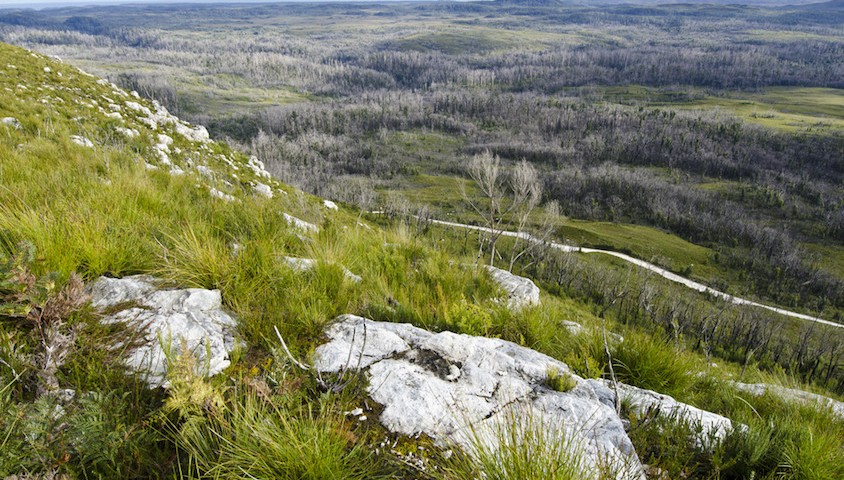Finally, Tasmania’s recent spate of bushfires are largely under control or extinguished, allowing the many organisations and individuals impacted by them to return to business as usual.
While some were impacted more than others, the owner of bushwalking tour company Tarkine Trails, Greg Irons says that there are few people in the state’s north west who weren’t disadvantaged by the disaster.
“We’re based out of Hobart, so we’re not quite as well connected with some other businesses in the north west, but we’ve definitely heard enough to suggest that many have been deeply impacted by these fires,” Irons said in a recent interview. “There’s also the potential that it could influence decision making about whether to visit the area next season, which is a bigger concern in some regards.”
Employment has long been an issue for people living in Tasmania’s north west, so a hit to tourism in the area has marked knock-on effects for other businesses and local people. In the case of Tarkine Trails, which runs trips in three locations around the Tarkine, the fires forced the business to cancel on customers at the last minute and Irons has since been waiting on word from authorities regarding when they can begin operating again.
“The fires sprung up very suddenly due to the fact they were lit by lightning strike, but their severity is no doubt testament to the impact of the drought we’ve had down here. As a result we were forced to cancel all of our trips in the three different areas we run them. That’s a total of seven trips that couldn’t go ahead, costing us in the order of $30,000-$40,000.
“The absolute hardest part of it all was having to cancel a trip just 11 hours before it was due to begin. There were customers who had flown from all over the world to do that trip. We worked with other operators to get them a replacement experience but that doesn’t go very far to truly rectifying the situation.”
Today, however, Irons is relieved to be able to send off its group of bushwalkers into the Tarkine since the fires started and the all-clear has been given to start taking bookings across all three locations. Unfortunately, the landscapes the visitors will experience are likely to be significantly transformed.
“We’ve been informed that one of the fires came within 800 metres of our standing camp, but we’re lucky in that the area’s surrounded by thick rainforest, which didn’t burn as easily as some other places,” said Irons.
However, it isn’t only the safety of tourists and locals that has Irons concerned, as he is also integral in the management of Bonorong Wildlife Sanctuary and is involved in researching and protecting Tasmanian devil populations in the north west.
The exact toll the fires have had on the wildlife, he said, is impossible to know.
“We know this is a time of year when there tends to be many nestling birds in tree hollows, so we can estimate there would have been many deaths of that nature. As for the Tasmanian devils we work with, well we know they can travel quite long distances and there are certainly a great many devils in the Tarkine region – but we just don’t know specifics.”
At this early stage it is thought unlikely that the fires would have any permanent effect on the viability of local devil populations, but Irons still hopes people recognise the deeper significance of the seemingly natural event.
“I hope this tragedy calls attention to the threat of fire in Tasmania. Certainly the Rural Fire Service and Parks and Wildlife Services worked very hard to protect peoples lives and livelihoods, however there’s been incalculable damage done to pristine rainforest and world heritage areas that, in the case of the pencil pines around Lake Mackenzie, will take many decades to even begin recovering.
“Some people might like to think this issue has been politicised by greenies to make a statement about climate change, but I think if there’s real reason to believe climate change has been a factor, then it needs to be taken seriously. We need to start thinking about how we as a society and as a species can change our behaviour to prevent this situation getting worse in the years to come.”


